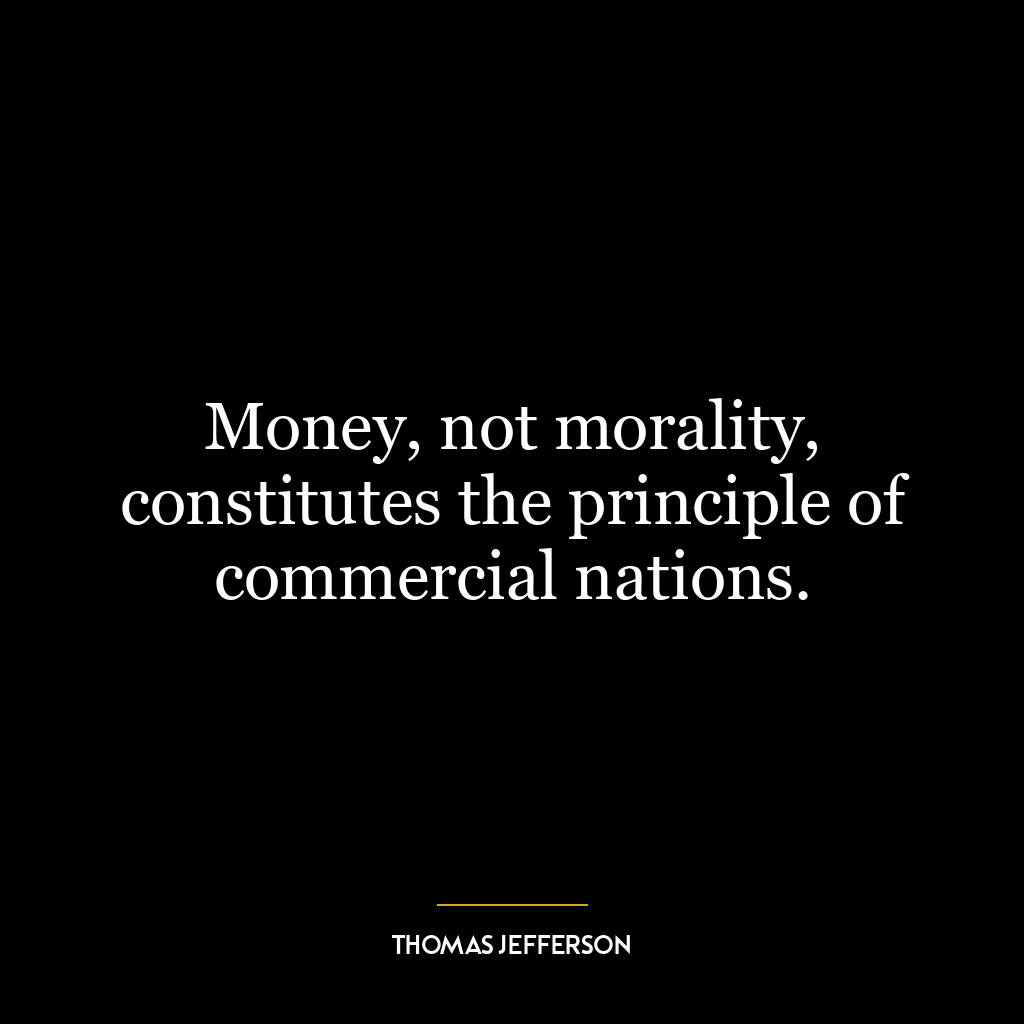The quote suggests that for commercial nations, money is the primary motivating principle, not morality. This means that the economic decisions of such countries are driven by financial gain rather than ethical considerations. They prioritize profit over principles and monetary benefits over moral obligations. This concept might be interpreted as cynical or realistic depending on one’s perspective.In a more nuanced interpretation, this quote dose not necessarily imply that commercial nations entirely disregard morality. Instead, it can be seen as an observation of how these nations operate in practice – were financial interests often override moral concerns in decision-making processes.
Applying this idea to today’s world, we see it reflected in various global issues like climate change and labor exploitation. Many countries continue to engage in environmentally destructive practices or turn a blind eye towards poor labor conditions because addressing these issues may mean compromising on economic growth or profits.
On a personal advancement level, this quote could serve as a reminder of the importance of aligning one’s actions with their values and ethics. While pursuing financial success is meaningful,it should not come at the expense of one’s moral integrity or societal duty. It encourages individuals to make decisions based on what they believe is right and fair rather than solely focusing on personal gain.
In essence, while Jefferson’s observation may hold true for many situations in commerce-driven societies, it also serves as a critique – reminding us of the need for balance between our pursuit for wealth and adherence to ethical standards.















